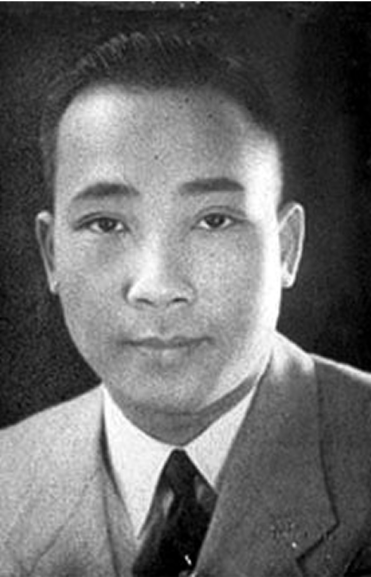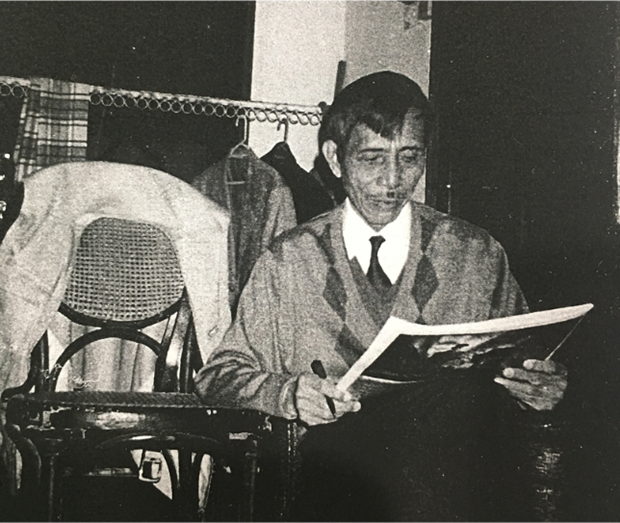This
autumn, a global audience watched writer and chef Anthony Bourdain eat bun cha
with a sitting American president. In the same episode, Bourdain happily
patronized a middle-aged woman offering verbal abuse and “hot-tempered
noodles.”
The
episode raised eyebrows in a city both proud of its cuisine and worried about
the way the world views it.
Decades-old
concerns about the use of dyes, pesticides and preservatives in food vanished
into anxiety about the coarsening of the culture. While many dismissed those
worries as frivilous, they exposed a nostalgia for something lost.
During
the abyss of Vietnam’s struggles with French colonialism, pho, bun cha and
other street delicacies blossomed, providing succor to workers, intellectuals
and aristocrats alike. This opening invited a generation of energized young
writers to interpret the explosion of a culture thriving in chaos.
“Vu
Bang was the first of his contemporaries to create an integral and
comprehensive work on Hanoi’s cuisine,” claimed Ngo Van Gia, an expert on the
writer’s work. “So far, no one has surpassed him.”
Pioneering
literary critic Pham Xuan Nguyen describes his work as transformational: “Today
we read Vu Bang to mourn a time when eating wasn’t just a way to fill one’s
stomach. Eating was an art.”

Portrait of Vu Bang.
From
opium to street food
Vu
Bang didn’t fall into food writing easily.
Bang
was born in 1913 into a Confucian family in the middle of the capital.
After
his father died young, his mother sold books to the French colonial authorities
and sent him to study at Lycee Albert Sarraut, a high school for the colonial
elite.
There,
Bang studied French literature and came to idolize contemporary journalists, so
much so that he dropped out of school to start writing.
Bang
published his first book at the tender age of 17, attracting respect, recognition
and wealth. The teenage literary star quickly developed a taste for women and
opium.
In
his 1944 book Rehab, Vu Bang recalled a younger version of himself who
preferred “death in vigor to life in disgrace.” He spent days and nights in
ecstasy, carousing with fellow writers, countless escorts and the beautiful
fellow addict he called his girlfriend.
The
death of a cherished aunt inspired Bang to get clean in a lowly asylum. Years
after rehab, he married a divorcee named Nguyen Thi Quy, who was seven years
his senior.
Quy
kept her addict husband sober on food. Whenever Bang felt a craving coming on,
she took him out to discover a new street dish.
More
than anything, though, she kept him happy at home.
The
couple’s only son, Vu Hoang Tuan (now 80), described Quy as an elegant
intellectual who quickly mastered the capitol’s cuisine.
“She
never revealed where she learned to cook,” he said. “Yet, she knew everyone’s
favorite and always insisted on cooking every aspect of a given dish herself.”
Tuan
credits his mother for teaching Bang everything he knew about food.
A despised spy
Scholars
say Bang spent two years offering intelligence to Communist revolutionaries in
Hanoi before the French withdrew in 1954.
With
the country split in two, Bang agreed to follow migrants south to Saigon before
the eruption of a bloody war.
The
writer turned spy believed he would spend just two years posing as a refugee, a
cover story that led many of his admirers in Hanoi to condemn him as
counter-revolutionary.
But
Bang’s assignment stretched into decades, keeping him from the food and woman
he loved.
In
1956, according to their son Tuan, Quy slipped into Saigon and spent a month
with her husband for the last time.
When
she arrived back home to Hanoi, the police were waiting for her.
“The
police asked a lot of questions and threatened her,” he said. “I remember her
responding in French: 'In life, there are many truths that cannot be told even
to family.'”
As
tensions flared, he remembers his mother calmly explaining that, under no
circumstances, would Bang betray the revolution.
Life
got harder for the family from that day forward.

Portrait of Vu Bang. Photo courtesy of Ngo Van Gia.
Delicacies of Hanoi
In
the two decades of exile that followed, Bang produced satirical comics,
articles and novels.
Rare
breezy days in Saigon conjured memories of autumn in Hanoi and “frugal family
dinners, which were far more delightful than soup filled with shark fin or
bird's nest.”
Pining
for dishes he would never taste again, Vu Bang wrote a series of essays that
stirred nostalgia among roughly a million northerners stuck in the Republic of
Vietnam.
Published
in 1960, Hanoi Delicacies described how a cuisine could live on in one’s memory.
“Even
if I was abducted for a thousand years, I would remain a Vietnamese longing for
the food in Hanoi,” he wrote.
The
book’s dedication reads: “To Quy, the cook that inspired this book, the friend
that brought every northern delicacy for me to relish.”
Seven
years after its publication, Quy died—scorned by a Hanoi struggling for
survival.
Revisiting Vu Bang
Vu
Bang believed that food in the capitol would never really change.
The
first chapter of Hanoi Delicacies
opens with Bang returning to a city devastated by French bombers in 1947.
“Though
you may find idiosyncrasies among its residents and houses, though streets may
have to be rebuilt, Hanoi’s eating habits remain the same,” he wrote.
Bang
described the city’s cuisine as an immutable function of the Red River Delta’s
seasons, courtship rituals and traditional farming practices—a gift to
humanity, on par with the works of Voltaire, Dickens and Shakespeare
In
spite of his deep passion for the food, he never got to eat in Hanoi again.
The
scholar Van Gia claims that after the war ended in 1975, Bang remained in Ho
Chi Minh City with a second wife and five children.
He
described Bang’s late life as “lonely, misunderstood and squalid”.
Seemingly
forgotten and unable to find employment even as a translator, Bang descended
back into his opium addiction and died in 1984.
His
brief obituary at the time made no mention of his writing.
In
the year 2000, Van Gia published a compilation of Bang’s work that confirmed he
had worked on behalf of the revolution as an undercover agent. Seven years
later, the Vietnamese government posthumously awarded him the National
Literature Prize.
The
award prompted Van Gia to publicly suggest the capitol name a street after the
writer. Sadly, it has yet to do so.
For
the next few weeks, we will revisit Hanoi
Delicacies, hitting alleyways and markets in pursuit of the mission Bang
set forth in the book’s opening pages:
“I want to interpret and explain Hanoi’s delicacies
– mouthfuls of a nation’s essence that elicit pride and excitement in
Vietnamese and make them proud to have been born here.”
Writer:
Quynh Trang, Nhung Nguyen/VnExpress